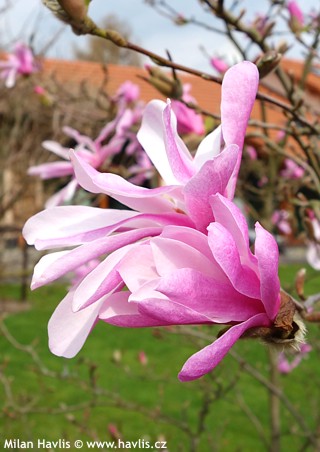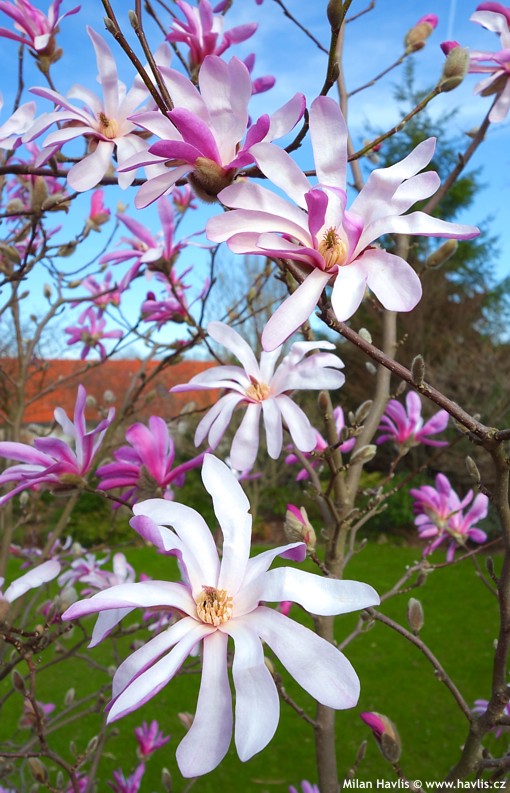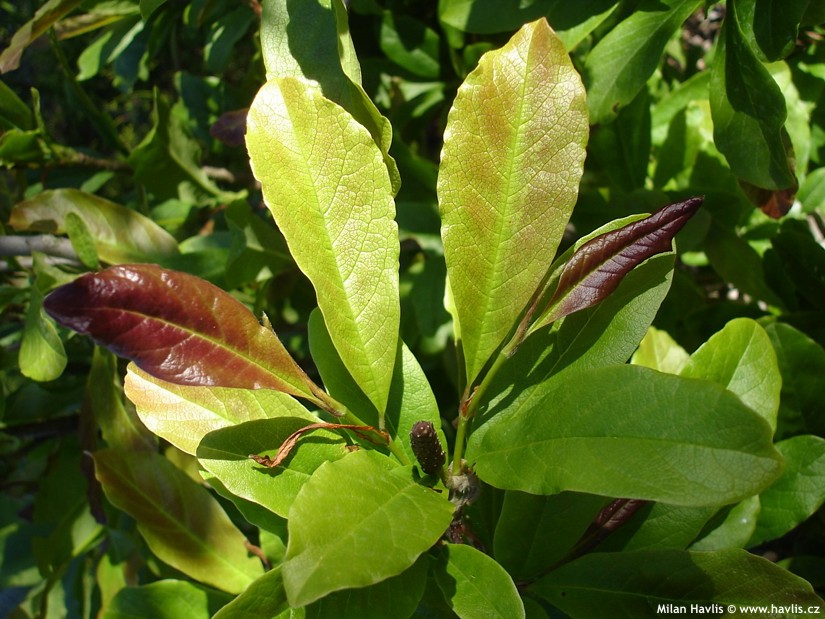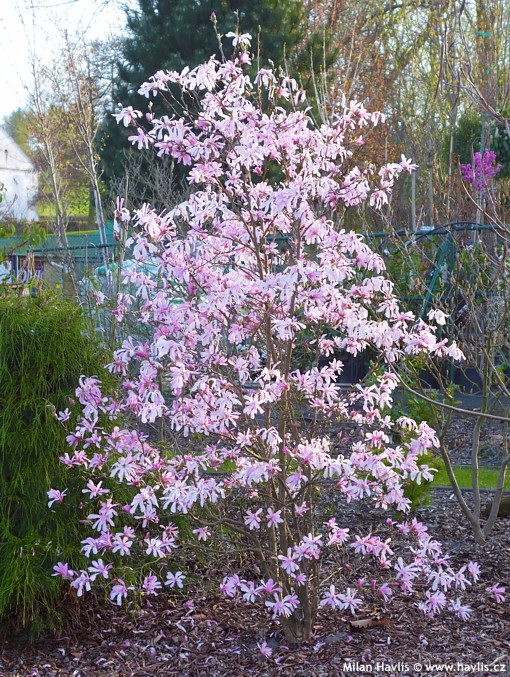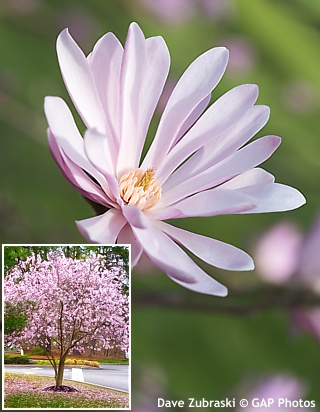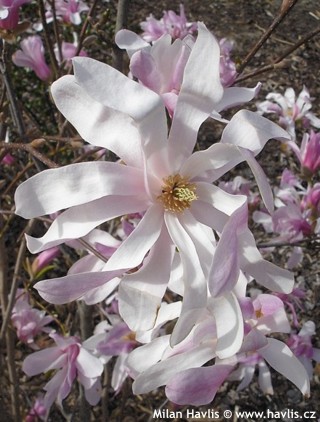Magnolia x loebneri 'LÉONARD MESSEL' star magnolia
size/type
medium-sized shrub,medium-sized shrub
usual height
1,5-3,5m
usual width
1-2m
leaves
deciduous broadleaf
colour of leaves
flowers
showy
colour of flowers
blooming time
April
location
full to partial sun
USDA zone (lowest)
5 (down to -29°C)
winter protection
for zone 5+6

for zone 7

categorized
Description of the plant:
Loebner magnolia belongs to the same group as star magnolias. It was bred in England as a cross between m.kobus and m.stellata Rosea. It offers later flowering which helps it escape late frosts in early spring. The star-shaped flowers are white inside and pink outside. As it blooms on bare branches we recommend placing it in front of an evergreen shrub, e.g. cherry laurel, holly, or any bright green conifer, to fully expose the beauty of its flowers. It grows slowly and dense into a widely pyramidal shrub. Ideal as a free-standing specimen or sensitively situated in a group of compact conifers of Japanese style. In gardens it grows about 3m tall while in parks where it has plenty of space for roots its eventual size may double.Magnolias are not supposed to be pruned. You can prune old shrubs if ill, or trim them to shape or to reduce size, or make an elementary cut to young plants of unsightly or unhealthy appearance. Do this as soon as possible after flowering to secure setting of flower buds for the following year. Be aware that each magnolia can respond differently to pruning.
Deciduous magnolias are quite easy plants. All they need is light, well-drained, acidic soil with equal moisture throughout the year. Once established they can do with occasional drought but will not look as nice as the ones with regular watering. Just pay attention to how to plant your magnolia. First, find it a spot where it will live forever and ever. It does not like transplanting. And as it makes shallow roots reaching well over its spread stay away from disturbing the roots by digging or messing about around it. Just cover the soil with bark mulch and do not plant anything else near it after say the second year after planting onwards. You could damage the very important top roots that absorb maximum moisture and nutrients from the soil. Also avoid planting magnolia too deep. Thus you could be digging its grave. It is fully hardy to USDA zone 5. Just make sure it is not in a too exposed windy area. We still recommend mulching it well to keep it moist in any season.
Last update 12-04-2011
QUICK PRICE OVERVIEW
CURRENTLY SOLD OUT












